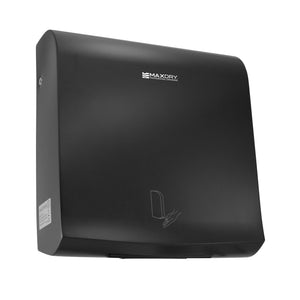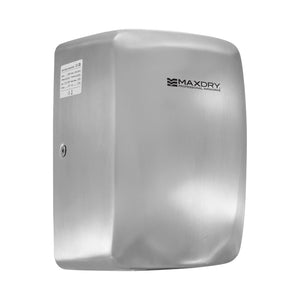Renewable Energy Options for Homes
Renewable Energy Options for Homes
Homeowners are now exploring eco-friendly options to power their homes, reduce carbon footprints, and even save on energy costs. You may ask why. Well, the shift towards a more eco-friendly living is not only beneficial for the environment but also for the financial health of homeowners.
With so many environmentally-friendly home improvements accessible, such as wind and solar energy and cutting edge technology like home battery storage solutions, the transition to sustainable living is both exciting and not challenging.
Let’s check the most common renewable energy sources at home.
1. Solar Power for Homes: Sunlight to Savings
Imagine turning sunlight into electricity right on your rooftop. That's what solar panels do. They can be small setups for a little house or big ones for larger properties. The beauty of these panels is their scalability; whether you have a cozy bungalow or a sprawling estate, there's a solar solution that fits. Plus, they seamlessly blend into your home’s design, adding a modern touch while they quietly work to power your home with clean energy.
Advantages of Solar Panels
Here's what makes solar energy cool:
-
Cuts Down Electricity Bills: Think of solar panels as your mini power station. Once they're up and running, you'll see your electricity bills drop. That's because you're making your own electricity, so you need less from the power company.
- Low Upkeep, Long Life: Solar panels are like the strong, silent type. They don’t need much care and they last for years. Plus, they don't have moving parts that wear out quickly.
- Money-Back Opportunities: Many places offer incentives for going solar. You might get tax credits, and rebates, or even get paid for the extra energy you produce.
Disadvantages of Solar Panels:
What about the disadvantages?
-
The Upfront Cost: Setting up solar panels needs some investment. It's like paying your energy bills in advance. But over time, the savings on your bills will make up for this.
- Depends on Your Location: Solar panels need sunlight. So, if you live somewhere with lots of cloudy days, they might not work as well. The same goes for shorter winter days.
If you install solar panels, you can save up to 90% on monthly electricity bills.
2. Wind Energy for Houses: Catching the Breeze
Now, let's talk about wind energy. It's less common but can be a great choice, especially if you live in a windy place. Imagine putting a windmill in your backyard that turns wind into electricity. It's like having your own personal power plant, harnessing the natural gusts of wind to light up your home.
These wind turbines can range from small, decorative models that power a single home to larger ones capable of supplying energy to multiple properties, adapting flexibly to the needs of your household.
Advantages of Wind Turbines
Let’s check its benefits:
- Eco-Friendly Energy: Wind turbines don’t pollute. They just stand there and turn wind into power, clean and simple.
- Good in Windy Areas: If you live somewhere windy, a turbine can be a steady power source, even when there's no sun for your solar panels.
Disadvantages of Wind Turbines
Here are the disadvantages of wind power:
- Initial Costs and Upkeep: Getting a wind turbine and keeping it running can be pricey. It's like buying a car – there's the purchase price, and then the maintenance.
- Space and Weather Needs: You need enough room for a wind turbine, and it only works well in places with the right kind of wind.
3. Geothermal Heating and Cooling: Harnessing Earth’s Core
When it comes to keeping your home comfortable year-round, geothermal energy systems are like a trusted friend. They're especially beneficial in areas with extreme weather conditions, providing an eco-friendly solution for heating and cooling needs.
Advantages of Geothermal Systems
What are the benefits of geothermal systems?
- Extremely Efficient: Geothermal systems are masters of efficiency. They can keep your home cozy in the winter and cool in the summer with minimal energy consumption, which translates to lower operating costs.
- Long Lifespan: These systems are built to last. The indoor components can serve you well for around 25 years, while the ground loop, buried beneath your property, can last for over 50 years with minimal maintenance.
Disadvantages of Geothermal Systems
What are the disadvantages of geothermal systems?
- High Initial Costs: The upfront installation costs for geothermal systems can be relatively high. However, the long-term savings on energy bills often make up for this initial investment.
- Geographic Limitations: Geothermal systems work best in certain geographic areas with suitable soil and land properties. In some regions, it may not be as practical or cost-effective.
4. Small-Scale Biomass Systems
Small-scale biomass systems are like nature's gift to homeowners seeking efficient and eco-friendly heating solutions. These systems harness the power of organic materials to provide renewable warmth, making them an attractive choice for those who care about the environment.
Advantages of Small-Scale Biomass Systems
Let's dive into the perks:
- Renewable Fuel: Imagine heating your home with wood pellets, leftover crop materials, or even organic waste. These are examples of renewable fuels that power biomass systems, making them a more sustainable choice.
- Carbon Neutral: When we burn biomass for heating, something remarkable happens. The carbon dioxide released during the process is roughly equal to the amount absorbed by the plants as they grew. This means that biomass is considered a carbon-neutral energy source. It doesn't significantly contribute to climate change, making it an eco-conscious choice.
Disadvantages of Small-Scale Biomass Systems
Now, let's look at the challenges:
- Emissions: While biomass is a sustainable option, it's not without its trade-offs. Burning biomass can produce air pollutants and tiny particles that affect air quality. It's essential to be aware of this aspect when considering biomass heating.
- Space and Storage: Biomass systems require space for fuel storage, similar to having a woodpile for your fireplace, but on a larger scale. This can be a bit tricky for homeowners with limited space, so it's worth considering your property size and storage options.
- Maintenance: Regular cleaning and maintenance are necessary to ensure efficient and safe operation.
5. Air Source Heat Pumps
Air source heat pumps work in harmony with the environment, extracting heat from the air to warm your home during the chilly months and providing cooling relief in the summer.
Advantages of Air Source Heat Pumps
It’s time to understand the benefits of these systems.
- Energy Efficiency: Heat pumps are highly efficient, as they transfer heat from the outside air to heat your home, rather than generating heat.
- Year-Round Use: Air source heat pumps can provide both heating and cooling, making them versatile.
- Low Operating Costs: They have lower operating costs compared to traditional heating systems.
Disadvantages of Air Source Heat Pumps
Now that you know the benefits, let’s understand the disadvantages of these systems as well:
- Temperature Sensitivity: Air source heat pumps may be less efficient in extremely cold climates.
- Initial Costs: The upfront installation cost can be significant.
6. Hydropower
Imagine using the force of flowing water to create electricity. That's what hydropower does. It's a reliable and clean method of producing electricity by utilizing the energy of moving water. We'll look at hydropower's operation, effects on the environment, and use in supplying homes and communities with electricity.
Advantages of Hydropower
What are the advantages of hydropower?
- Clean Energy: Hydropower is a clean and renewable energy source that produces minimal emissions.
- High Efficiency: Hydropower plants have high energy conversion efficiency, making them an effective energy source.
- Energy Storage: Some hydropower facilities can store excess energy for later use.
Disadvantages of Hydropower
What are the disadvantages of hydropower?
- Environmental Impact: Large-scale hydropower projects can have significant environmental consequences, including habitat disruption and altered river ecosystems.
- Limited Locations: Hydropower plants require suitable rivers or water bodies, limiting their applicability to specific geographic locations.
- Upfront Costs: The construction of hydropower facilities involves substantial initial investment.
Home Battery Storage Solutions
Battery storage systems store excess energy generated by solar panels or wind turbines. This stored energy can be used during non-productive hours, improving the home's energy independence. These solutions provide energy backup and maximize the use of generated renewable energy.
Sustainable Living Tips
Besides exploring renewable energy options for your home and considering home battery storage, there are several other smart choices you can make to create a more energy-efficient and eco-friendly living space:
- Energy-Efficient Hand Dryers: Imagine high-speed hand dryers in your bathroom. They not only dry your hands quickly but also use advanced technology to save energy, making them a sustainable choice compared to traditional dryers or paper towels.
- LED Lights: Switching to LED lights is like giving your home a sustainable makeover. These energy-efficient bulbs not only reduce your electricity bills but also have a longer lifespan, meaning fewer bulb replacements.
- Smart Thermostats: Picture having a thermostat that can think for itself. Smart thermostats help regulate your home's temperature by learning your preferences and optimizing heating and cooling systems. It's like having a personal climate manager, making your home comfortable while saving energy.
- Programmable Appliances: Imagine appliances that follow your schedule. Programmable appliances allow you to set energy-saving routines, reducing power consumption during peak hours. It's like having appliances that adapt to your lifestyle.
- Efficient Home Insulation: Think of your home like a cozy cocoon. Proper insulation ensures that you stay warm in winter and cool in summer. This enhances comfort and reduces the workload on heating and cooling systems, saving energy and money.
- Energy-Efficient Windows: Consider installing double-glazed windows to improve insulation and reduce heat transfer, making your home more energy-efficient.
- Water Conservation: Install low-flow faucets, showerheads, and toilets to reduce water consumption without compromising water pressure.
- Energy Audits: Consider getting a professional home energy audit to identify areas where you can further improve energy efficiency.
- Sustainable Materials: When renovating your home, choose sustainable and eco-friendly building materials to reduce environmental impact.
- Unplug Chargers and Devices: Disconnect chargers and devices once fully charged to prevent unnecessary energy consumption.
- Energy-Efficient Appliances: When buying new appliances, go for the ENERGY STAR label, which shows high energy efficiency.
Technological developments in renewable energy have improved the efficiency and accessibility of eco-friendly residential power. A few examples of how households can include sustainable practices in different ways are energy-efficient hand dryers, environmentally friendly restroom solutions, and green building energy solutions.
Remember, we all contribute to a future that is cleaner, greener, and more sustainable by doing our research and investing in renewable energy
FAQs
Because of its adaptability and capacity to lower electricity costs, solar power is frequently the best option for houses.
Wind energy is affordable because it is economical, particularly in windy places.
Use LED lights, energy-efficient hand dryers, and smart thermostats for sustainable improvements.
Related Products
-
ThinMAX High Speed Hand Dryer - Black Coated Stainless Steel

- Regular price
- $427.60
- Sale price
- $427.60
-
SpaceMAX High-Speed Vertical Hand Dryer, Brushed Stainless Steel (Satin)

- Regular price
- $279.50
- Sale price
- $279.50



